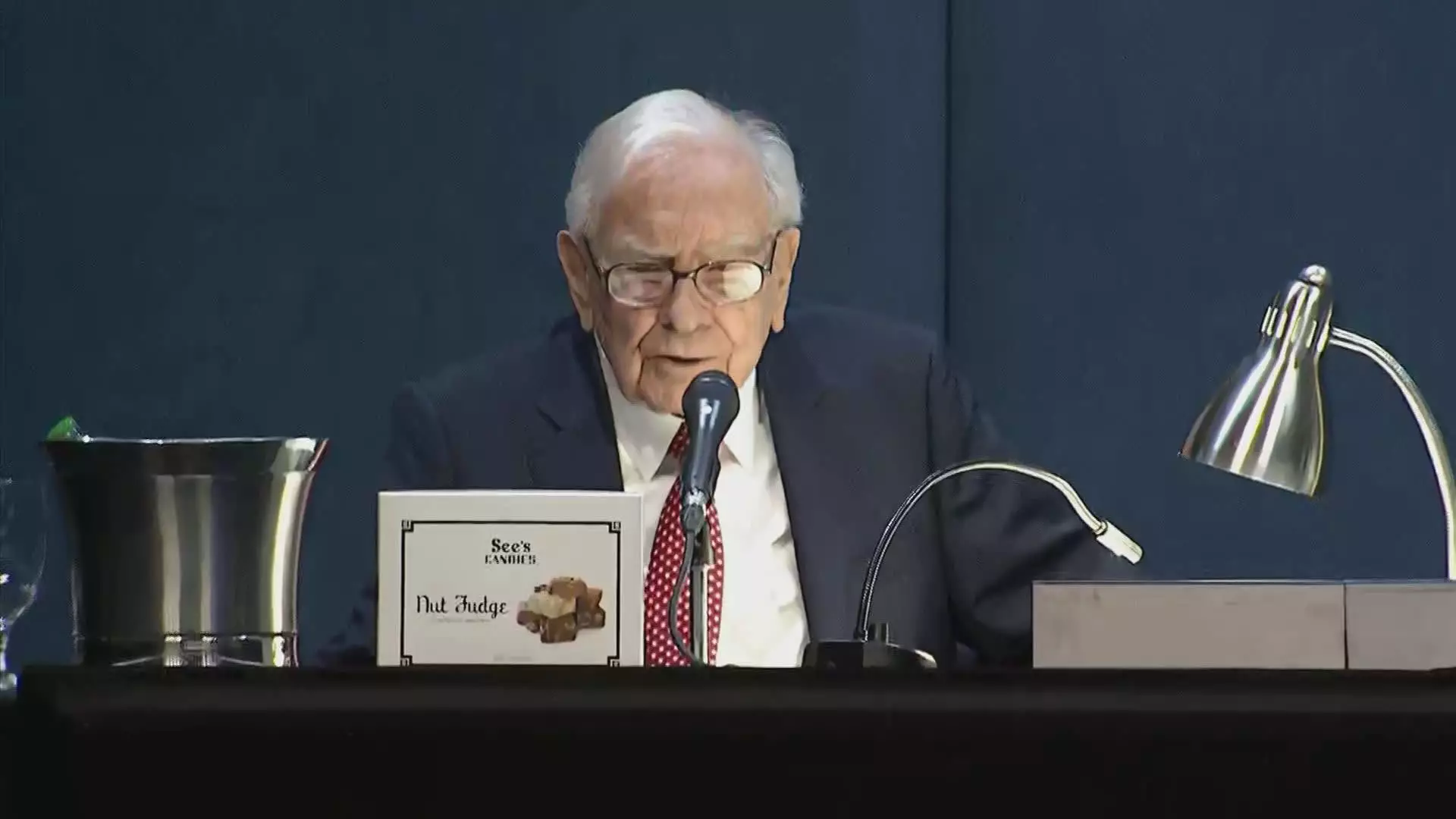In a week characterized by a significant downturn in the equity markets, driven by President Donald Trump’s controversial trade tactics, Berkshire Hathaway has proven resilient. Class B shares of Warren Buffett’s conglomerate decreased by merely 6.2%, outperforming the broader S&P 500, which faced a staggering drop of 9.1%. This resilience cannot merely be chalked up to luck; the foundational elements of Berkshire Hathaway’s business model serve as a sturdy buffer against market turmoil.
The hallmark of Berkshire Hathaway is its diversification across various sectors—including insurance, manufacturing, energy, and retail—which lessens the impact of adverse market conditions. By being less dependent on the ebbs and flows of the stock market, especially in a time of uncertainty, Berkshire possesses an intrinsic strength that many other companies lack. It’s not merely a haven for investors; it embodies a philosophy of sustained prosperity.
Strong Cash Reserves as a Safety Net
One of the most notable aspects of Berkshire Hathaway’s financial health is its staggering cash reserve, reported at $334 billion by the end of 2024. This extensive liquidity positions the conglomerate uniquely in a market grappling with uncertainty. Cash-rich companies are often seen as safe havens, inviting investors to seek refuge in their robust balancing act amidst wavering economic confidence.
These reserves afford Berkshire the flexibility to not only weather downturns but also to make strategic acquisitions and investments during market lows. In stark contrast, companies that rely heavily on external financing, particularly those impacted by fluctuating interest rates or international diplomacy, may falter in an increasingly unpredictable environment.
The Unique Position Against Market Forces
Josh Brown, CEO of Ritholtz Wealth Management, articulated a crucial observation: Berkshire Hathaway functions independently from the whims of political maneuverings in Washington, D.C. In a climate where numerous firms tether their fortunes to presidential policies, Berkshire stands out as a stalwart beacon of stability. Its business operations are largely insulated from the erratic policies flowing from the Oval Office, making it a haven for investors skittish about market volatility.
Buffett’s strategy emphasizes a long-term view that withstands occasional political storms. This counter-cyclical fashion often results in significant rewards for those patient enough to align with such an approach. Companies that thrive primarily through political favor may ultimately see their foundations crumble when the tides of policy change.
Momentum and Market Sentiment
Richard Ross, a leading analyst at Evercore ISI, has noted that Berkshire is the only major company among the top ten in the S&P 500 still trading above its 200-day moving average—a critical momentum indicator. This singular position invites a growing base of investors to reassess their portfolios, especially during bearish market movements where confidence dwindles.
Momentum can build upon itself; a company that exhibits stability becomes increasingly attractive as investors migrate towards less volatile options. The psychological element of market behavior is crucial, and Berkshire’s burgeoning reputation during these downturns enhances its standing among savvy investors who prioritize both stability and potential for future growth.
The Historical Context of Resilience
Berkshire Hathaway’s history is replete with examples of navigating through economic malaise. The investment philosophy implemented by Buffett emphasizes acquiring companies with sound fundamentals. More than just a stock to own, this conglomerate is often viewed as a representation of a sharper and more astute approach to capital investment, making it appealing to those who value prudence over speculation.
Rather than narrowly focusing on quarterly earnings or short-term gains, Berkshire’s extensive and diverse portfolio employs a strategic method that speaks volumes about the longevity of its business structure. This historic resilience becomes even more apparent when juxtaposed against the quick turnover typical of many tech stocks, which are often more susceptible to abrupt market shifts.
In Defense of the Underrated
In a stock market surging with daring valuations, Berkshire Hathaway’s steady climb serves as a reminder that safety can indeed coexist with opportunity. Far from being the slow-moving giant that many portray, Berkshire’s measured approach with quality investments presents potential for long-term success. As uncertainty casts a shadow over Wall Street, the wisdom of Warren Buffett echoes loud and clear: both history and strategy favor those who can endure.

